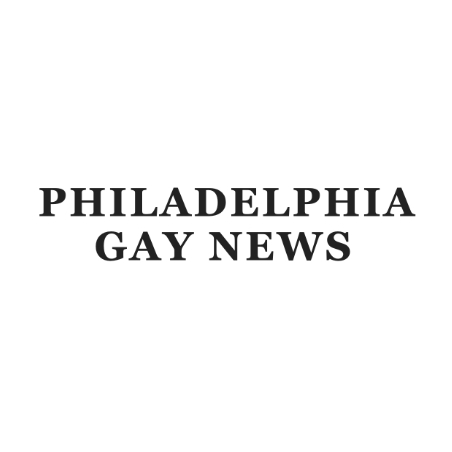If you’ve been to any Pride festival, you know folks will dress in all kinds of outfits, whether it’s booty shorts and harnesses or T-shirts and jeans. My boyfriend and I fell into the latter category at Philly Pride. I opted for a black tee with the words “Queer Existence Is Resistance” and he opted for a black tee featuring a rainbow-patterned heart with a silhouette of a rat (his favorite critter) in front of it. We’re not typically the type of people to “show off,” though we love and celebrate the folks who do.
As we exited my apartment complex to join everyone else in celebration, we ran into one of my neighbors. We did our usual pleasantries and then she took a look at our outfits.
“Thankfully, you two are dressed normal,” she said.
I knew exactly what she was talking about. She wanted to disparage some of the more outlandish outfits on display outside. But I had some time that day to entertain her — and myself.
“What do you mean by ‘normal?’” I asked.
“There are just so many people wearing ridiculous outfits out there,” she replied, providing further details about the attire she saw. Her big fixation seemed to be on plus-size people wearing crop tops and “shorts with their asses hanging out.” I still had some time for entertainment.
“We loooove ridiculous outfits,” I said. “Those are the types of people we love hanging out with.”
“You love hanging out with ugly people!?” she gasped.
Without blinking or flinching, I said “Yes. During Pride, we celebrate all different kinds of people, including so-called ‘ugly’ people.”
She then started to speak about how she had a Pride flag hanging from her window (The sarcastic voice in my head was screaming, “Wow! What an ally!”). The conversation didn’t go much further than that. She probably realized I wasn’t going to let her speak disparagingly about my community.
This discomfort with queerness that doesn’t follow societal norms isn’t limited to people like my neighbor — it also comes from within. Alex Armstrong, a gay host of UK’s GB News, recently said, “[Pride month] doesn’t show anything good about the gay community. It stereotypes them, and there’ll be millions of gay men, thousands of them watching tonight, who’ll go: ‘Actually, I don’t want that representing us’.”Because according to him, gay men represent the ENTIRE community. He then went on to state the usual transphobic dogwhistles about how the LGBTQ+ community, specifically the trans community, is trying to indoctrinate children.
Armstrong also tried to make the claim that all the community wants is to be accepted as part of society.
“Do you want to be part of society, or do you want society to look at you and think you are different?” he asked.
That brings up a whole other question: What does it mean to be “part of society?”
Does it mean you’re a monogamous gay couple raising children in your white suburban neighborhood behind a white picket fence?
Does it mean you’re a conventionally attractive trans woman working as a CEO for a major corporation…but not daring to mention that you’re trans?
Does it mean you “dress normal” like my boyfriend and I did at Pride?
Maybe these examples make LGBTQ+ people easier to understand for straight, cis people. But the reality is that not everyone is going to fall into these socially acceptable categories. Even within the LGBTQ+ community, there will be people who will be seen as weird outcasts who scoff at convention.
And we have to accept them too.
We need to accept plus-size folks who decide to wear crop tops and short shorts.
We need to accept trans men who are showing off the chest hair they’ve grown from taking testosterone, but decided to keep their breasts by opting out of top surgery.
We need to accept the kinky folks. As long as they’re engaging in behavior that is safe, legal and consensual, they are doing nothing wrong.
If you’re a member of the LGBTQ+ community, don’t be the bully you survived while growing up. There’s enough bigotry outside of our community and we don’t need to join in. And if you’re not a member of the LGBTQ+ community and still want to take the label as an “ally,” know that not everyone is going to fall under the norms you’ve come to know. You may share those “love is love” memes every Pride month but being an ally means supporting the whole community, not just some.
We need to make room for ALL people during Pride season and every season after that. And that includes the ones who don’t “dress normal.”
The post Some LGBTQ+ people are outlandish and weird — and you should support them too appeared first on Philadelphia Gay News.

